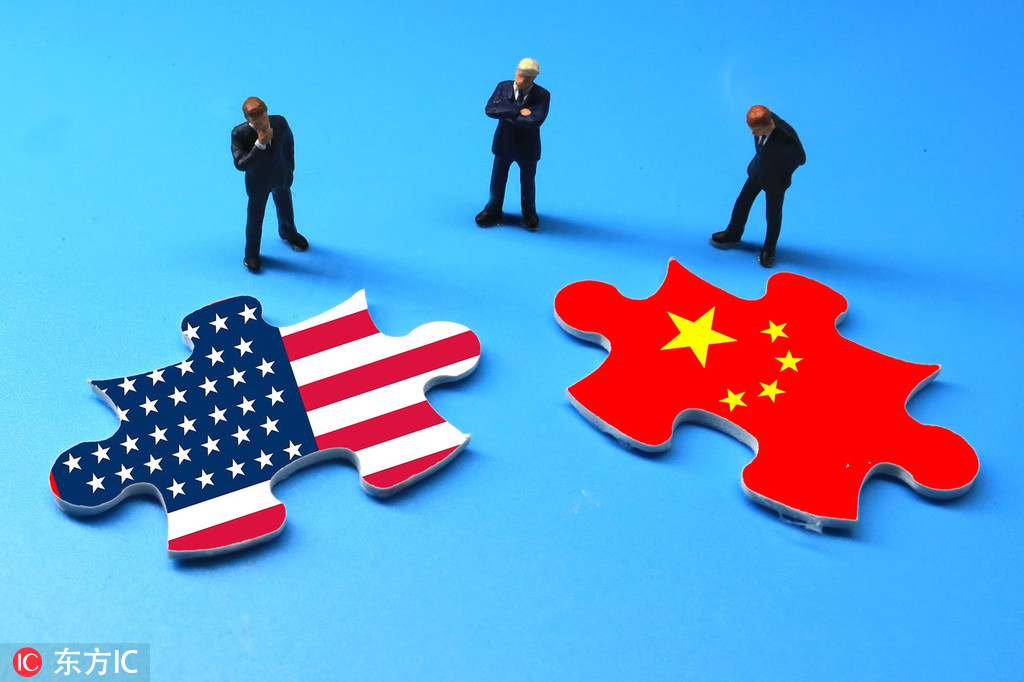Sino-US competition can be win-win


The United States government has been describing China as a competitor for some time.
In November 2017, the Trump administration labeled China a "strategic competitor" in its National Security Strategy and waged a trade war and a tech war against China.
On March 3, the Biden administration issued the Interim National Security Strategic Guidance, which identified China as the US' No 1 competitor and "the only competitor potentially capable of combining its economic, diplomatic, military and technological power to mount a sustained challenge to a stable and open international system."
China begs to differ. It thinks of relations with the US as reciprocal and win-win in the final analysis. Cooperation weighs much heavier in this relationship, though competition does exist.
On March 7, State Councilor and Foreign Minister Wang Yi, in answering a question about China-US relations, said: "It is normal that there is a competitive element in China-US relations as our interests converge. What matters is that the two sides should advocate healthy competition on a fair and just basis for the purpose of self-improvement and mutual enhancement, rather than finger-pointing or zero-sum game. More important, cooperation should be the main goal for both China and the United States in the interest of the two countries and the whole world."
China and the US see competition in a different light. The US regards strategic competition as a zero-sum game, during which rivalry takes center stage and only one winner will prevail. President Joe Biden also said in the National Security Strategic Guidance that the US has one goal in all its current endeavors, which is to outpace China and prevail.
According to the guidance, "the most effective way for America to out-compete China over the long-term is to invest in our people, our economy, and our democracy". The US is bent on beating China, since it sees China as a threat to its values and lifestyle. The guidance also says, "We will also deter Chinese aggression and counter threats to our collective security, prosperity and democratic way of life."
China rejects the idea of a pure zero-sum game. Competition should not aim at containing, weakening or even defeating the counterparty. China and the US can inspire each other and grow together instead of engaging in a zero-sum game.
China envisions a new type of major-country relationship based on mutual respect and win-win cooperation, free of conflicts or confrontations. It holds that different values and ways of life can coexist in harmony and succeed together in a community with a shared future for mankind. When tensions were escalating between China and the US amid former president Donald Trump's all-out confrontations, China proposed a transitional strategy for advancing the bilateral relationship based on coordination, cooperation and stability.
Both China and the US agree that competition should be rules-based, but they approach rules from different angles. The US touts "American exceptionalism "in international affairs and invokes domestic laws in foreign relations at will. China emphasizes that bilateral relations must be built on basic principles and norms of international law that are generally accepted by the international community, rather than unilaterally defined by the US. Competition should be healthy and take place in a fair and just manner.
China hopes that strategic, security and many other domains that necessitate global cooperation will be kept out of the contest. Under Trump, the US gradually expanded its confrontational policies from the trade war to all aspects of China-US relations in a display of "strategic competition".
China and the US differ fundamentally in "competition" strategies. By "strategic competition", the US intends to triumph over China, thus dismissing the notion of win-win cooperation proposed by China. The US believes that China is the sole winner in the status quo and the US the sole loser, while China is convinced that the bilateral relationship is reciprocal and win-win in essence, and cooperation was, is and should be the defining feature.
It doesn't have to be all winning or all losing for China or the US, since each can prosper in its own way and the two can coexist in harmony. As a developing nation at the primary stage of socialism, China lags far behind the US in composite national strength and harbors no intention of challenging the superpower. China believes that in a multipolar world, as it will be in the future, there will be no place for a hegemon and China for sure will be no hegemon in the place of the US.
Competition defined in different ways reflects the competitive dynamics between China and the US. In turn, it will also guide policymaking and affect the future direction of bilateral relations.
With the world still fighting COVID-19, there is arduous work to be done regarding post-pandemic rebuilding, economic recovery and global governance challenges such as climate change and food security.
Meanwhile, the US and China also need to address complex governance headaches at home. It is rational, pragmatic and realistic to adopt more cooperative instead of confrontational policies in the bilateral ties.
The author is director of the Institute of Peaceful Development of the Chinese Academy of Social Sciences. The views do not necessarily reflect those of China Daily.
































